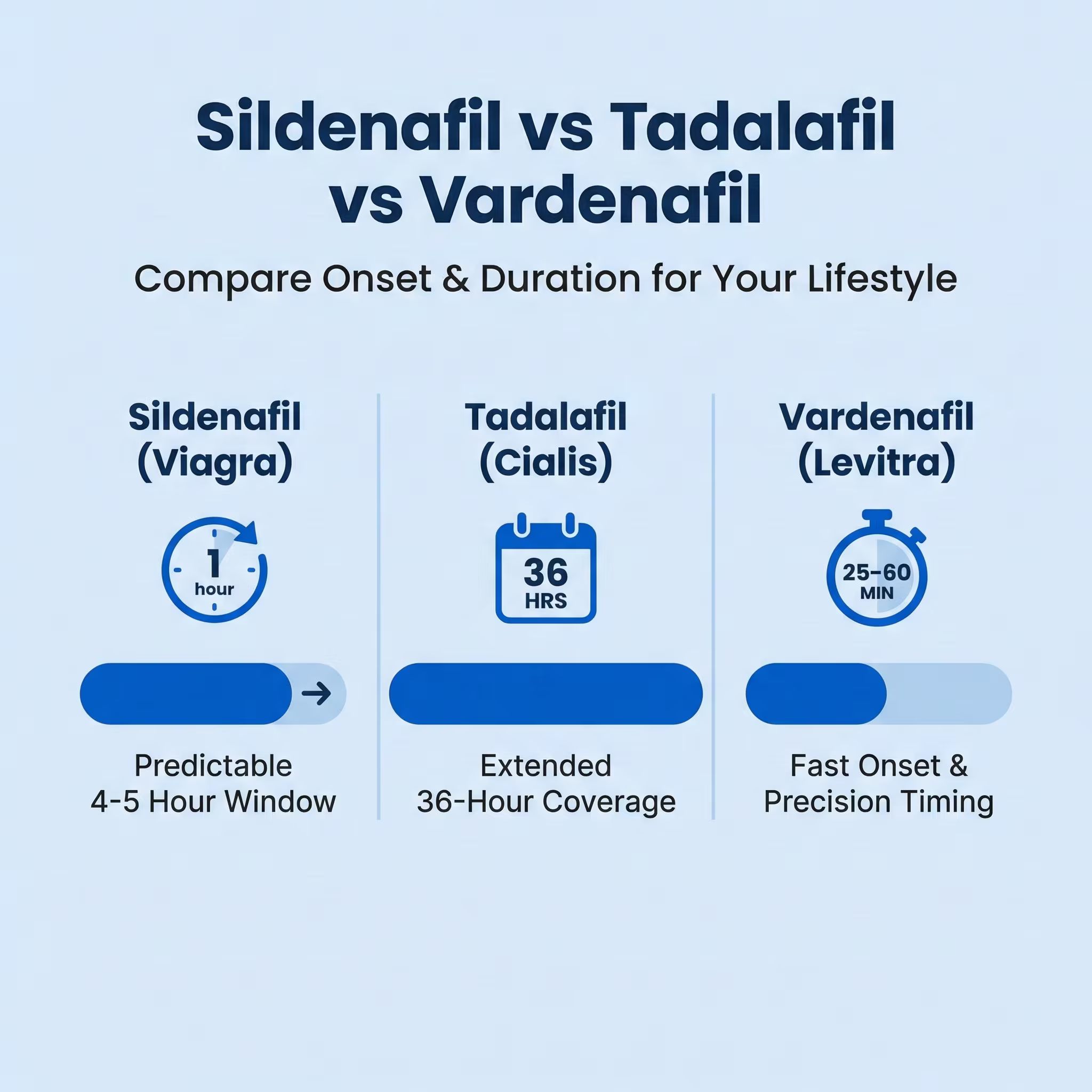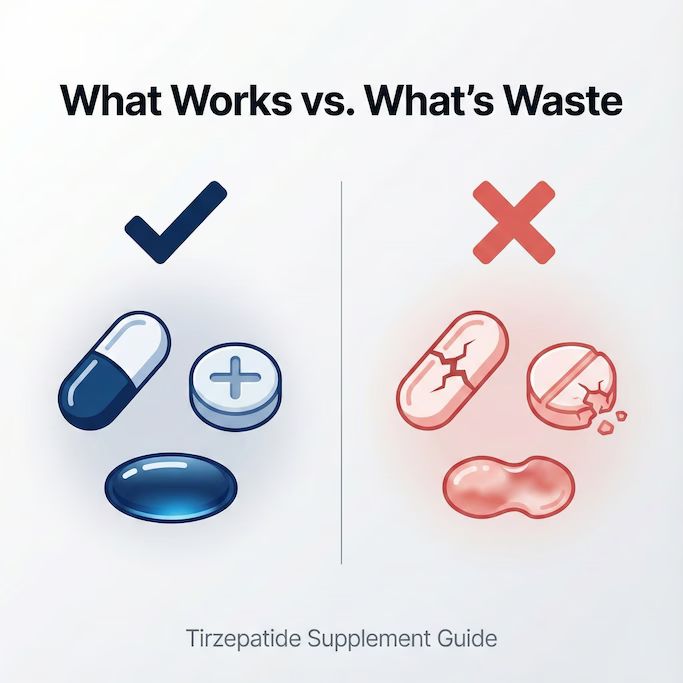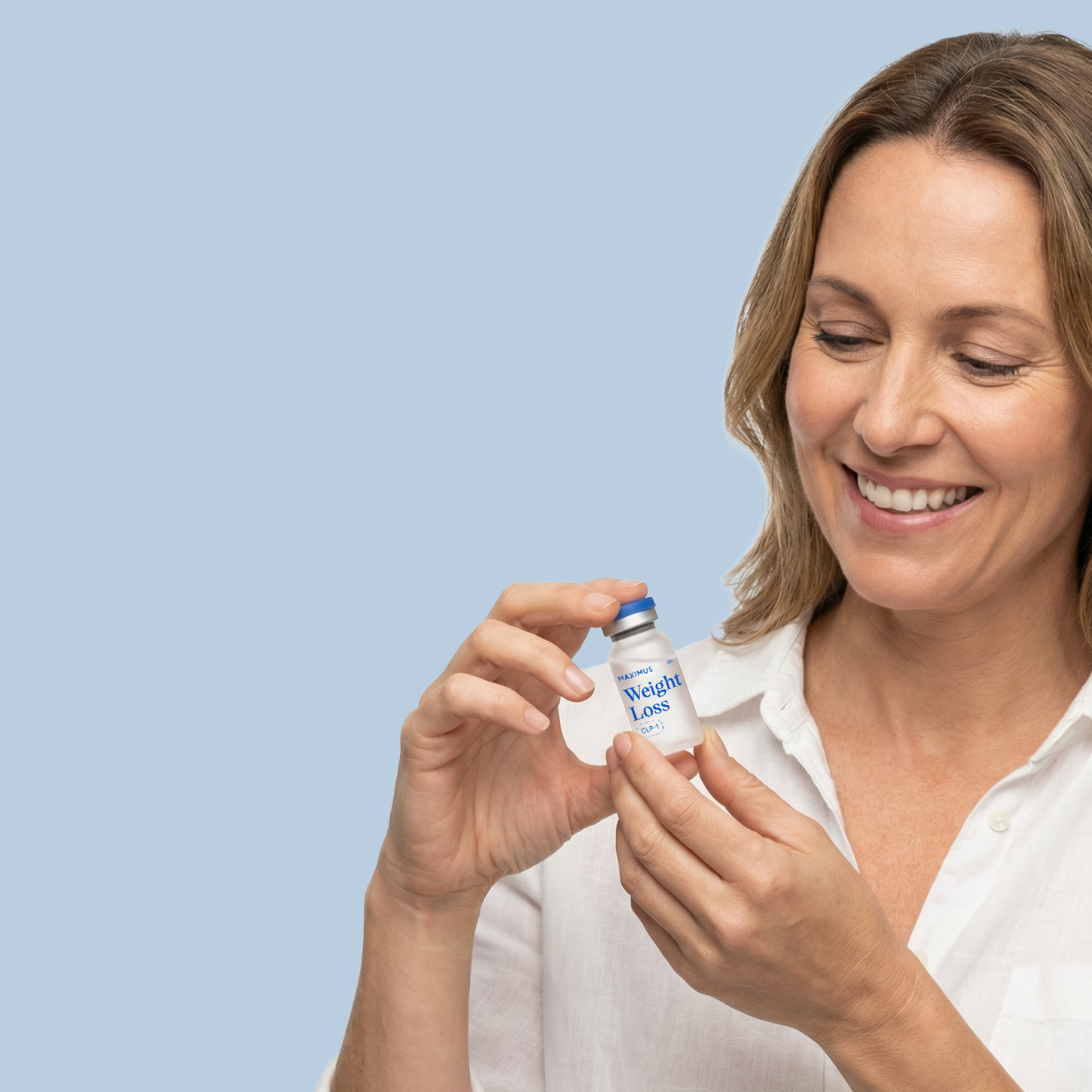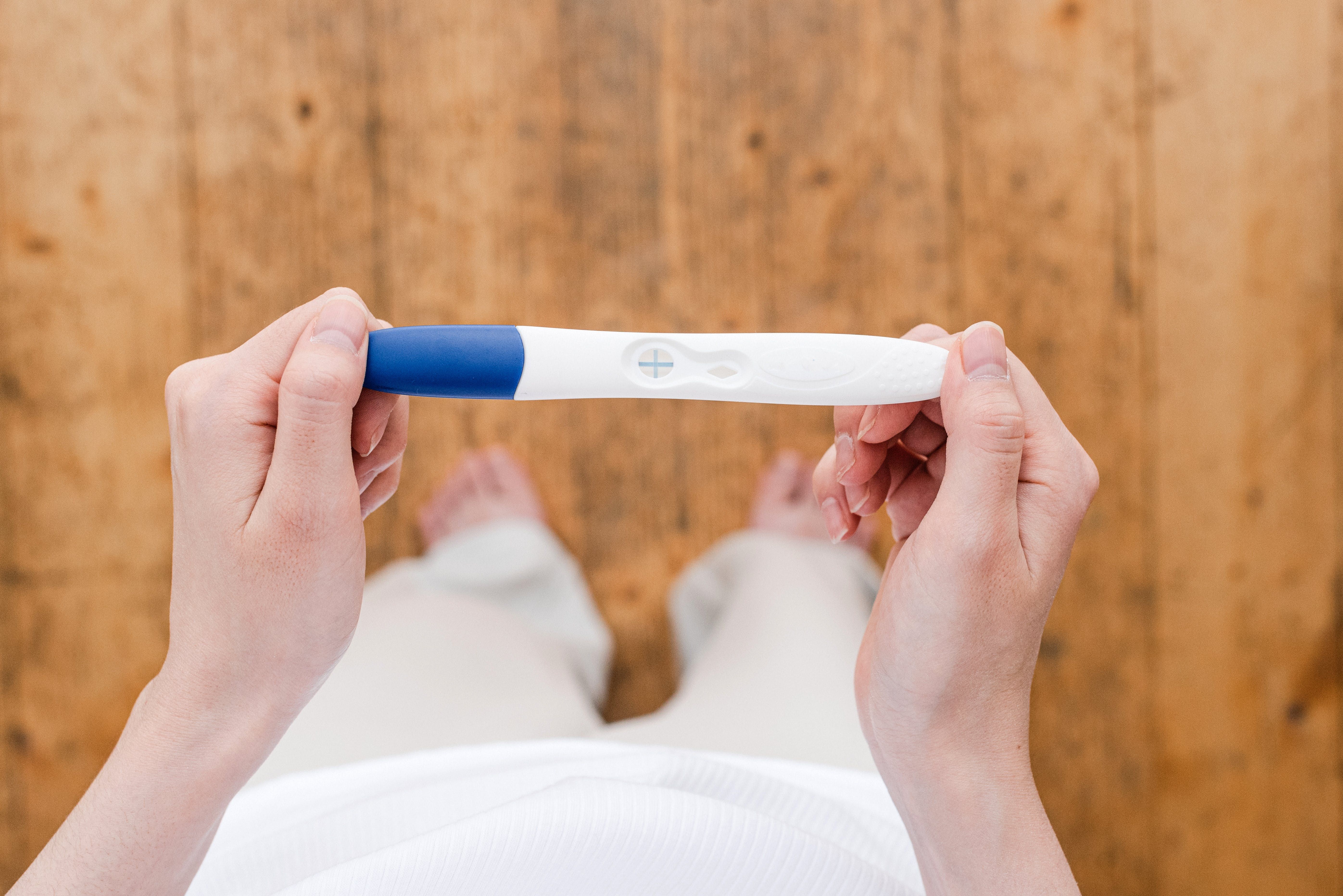Your body monitors the levels of testosterone circulating in your bloodstream thanks to a sophisticated signaling system between your brain and your testicles known as the hypothalamic–pituitary–gonadal (HPG) axis. If your body senses an abnormal spike in testosterone due to a hormonal therapy like testosterone replacement therapy (TRT), it will shut down the HPG axis, which can impair your fertility.
This article will explore alternative therapies to TRT, including human chorionic gonadotropin (HCG), clomiphene citrate (Clomid®), and enclomiphene citrate, to find out which option is superior in boosting testosterone and other components of male fertility, like sperm count and sperm quality.
How does testosterone affect fertility?
Before we dive into how testosterone therapies like TRT affect fertility, it’s important to understand the role that natural testosterone plays in sperm production.
Testosterone is produced by the Leydig cells in the testes. While testosterone plays a role in some aspects of spermatogenesis, specifically in driving the division and differentiation of sperm cells, it is not the hormone that actually stimulates sperm production. In fact, many people with low testosterone can still produce healthy sperm. But testosterone does impact libido and sexual function, which can both indirectly affect fertility.
The hormones that actually play a role in producing sperm are gonadotropin-releasing hormone (GnRH), luteinizing hormone (LH), and follicle stimulating hormone (FSH). Here is a brief overview of how they function within the HPG axis:
- The hypothalamus releases GnRH, which signals your pituitary gland to release LH and FSH.
- LH then stimulates the interstitial Leydig cells in the testes to make testosterone.
- FSH stimulates the sertoli cells in the testes to make and maintain sperm.
If the HPG axis detects that there is enough testosterone and sperm produced, it will halt FSH production by inhibiting the release of GnRH. At the same time, the Sertoli cells will produce the hormone inhibin, which slows the production of sperm.
Does testosterone therapy affect fertility?
When a man finds out that his testosterone levels are low or he starts to experience telltale signs like fatigue, erectile dysfunction, and low libido, TRT may seem like the obvious solution. But this couldn’t be further from the truth. TRT is notorious for impacting your fertility, which we’ll discuss more in detail below. Fortunately, it is not the only option when it comes to boosting your T levels. There are a variety of testosterone therapy treatments and medications just as effective at increasing testosterone safely without compromising your fertility. In some cases, these therapies may even boost your sperm count and quality.
When you take exogenous testosterone (which is testosterone that has been produced synthetically) in the form of TRT, your hypothalamus gets the message that you have enough testosterone and shuts down your HPG axis, along with the production of FSH. Some studies even refer to TRT as a “contraceptive” because the hormone treatment is known to negatively impact the production of sperm, though this may be an overstatement because some people have managed to conceive while on TRT. The form of TRT also matters. If you’re taking injections, you should expect to see the biggest spike in testosterone and a more immediate suppression of the HPG axis. Testosterone gels and oral TRT result in smaller spikes, but they come with their own side effects and risks which should be considered.
Ultimately, how TRT affects your fertility comes down to the strength and duration of the spike in testosterone. While some people manage to conceive while on TRT, their chances are significantly decreased.
Maintaining fertility on TRT with other testosterone therapies
Figuring out how to maintain fertility on TRT is not always easy. If your testicles aren’t receiving signals from your brain, it can lead to testicular atrophy. While some studies show that it’s possible to recover the ability to produce sperm after you stop taking TRT, it can take several months to several years, and in some cases may be permanent.
For this reason, some people turn to drugs like HCG or Clomid to make sure their testicles continue working after TRT. Here’s how these testosterone therapies work and how they compare to TRT:
HCG and fertility
Men do not produce human chorionic gonadotropin (hCG) naturally, but when it is injected into the body, it functions like LH in the body to keep the testicles working. Some research indicates that hCG seems to preserve sperm count and quality, and potentially fertility, during TRT, but more studies are needed to confirm this finding. While HCG may maintain the functionality of the testes while on TRT, it’s not guaranteed to preserve sperm production.
A potentially more effective way to use HCG is to help restore sperm counts after someone comes off TRT. In one study, taking 3,000 units of HCG every other day after stopping TRT improved sperm counts in 95.9% of study participants in a little over four months of treatment. However, the study combined HCG with either FSH, clomiphene citrate, tamoxifen, or anastrozole. More research is needed to investigate whether taking HCG alone could restore sperm counts after TRT.
Clomid and fertility
While HCG functions as a stand-in for LH, Clomid, or clomiphene citrate, increases the secretion of LH. It belongs to a class of drugs known as selective estrogen receptor modulators (SERMs), which alter the way estrogen works in the body. Having dual antagonist and agonist effects, which means it simultaneously increases and decreases estrogen in the body, due to its chemical makeup of enclomiphene and zuclomiphene, clomiphene citrate increases the production of LH and FSH, and thus leads to increased production of intratesticular testosterone, which is vital for sperm production.
Like HCG, sometimes TRT and clomiphene citrate are prescribed together to mitigate TRT’s negative effects on fertility. Studies show clomiphene citrate may help subjects maintain testicle size and intratesticular testosterone concentrations while on TRT.
In some cases, HCG and clomiphene citrate are prescribed together after coming off TRT to restore semen parameters as earlier mentioned. This is because higher doses of HCG are actually known to suppress FSH levels. Adding clomiphene citrate into the mix has been shown to preserve and possibly even enhance the pituitary gland’s secretion of FSH and LH.
However, taking clomiphene on its own is equally promising in terms of restoring semen health or as an alternative therapy to TRT for low testosterone. Instead of replacing your body’s testosterone with a synthetic version like TRT, clomiphene restores your body’s ability to make its own. In one study comparing clomiphene to TRT, researchers concluded that clomiphene was better than TRT in preserving intratesticular testosterone production and sperm production while improving common symptoms associated with low testosterone like erectile dysfunction, loss of bone mineral density, and high BMI. Some research indicates that testosterone levels may increase within four weeks of starting the treatment.
Enclomiphene and fertility
Enclomiphene citrate is another alternative to TRT that is also a SERM like clomiphene. In fact, enclomiphene is the purified form of clomiphene and does not contain the estrogen booster zuclomiphene. This is an important distinction because zuclomiphene is associated with a number of side effects due to its estrogen-boosting properties, including mood changes, sore breast tissue, weight gain, and acne. Studies show that enclomiphene is the “more potent” component of clomiphene in restoring testosterone and sperm counts, while also elevating LH and FSH levels. Some researchers have even suggested that zuclomiphene only contributes a small amount to the medication’s intended outcomes, making a strong case for using enclomiphene as a monotherapy.
Here are some of the clinically-proven benefits of enclomiphene:
- Increases testosterone: TRT was traditionally considered the gold standard when it came to increasing testosterone. However, in this study comparing enclomiphene to TRT, enclomiphene was found to be just as effective as testosterone therapy while maintaining sperm concentration.
- Boosts sperm count: In addition to boosting testosterone, enclomiphene has also been shown to elevate sperm counts.
- Improves sperm quality: Enclomiphene has also been proven to improve sperm motility, which refers to the proper movement of sperm.
- Increases total motile sperm count (TMSC): TMSC refers to the total number of moving sperm in the entire ejaculate, and is considered the “single most important semen analysis parameter” for predicting the severity of male infertility. When comparing enclomiphene vs clomiphene, both do improve sperm motility, but only enclomiphene is shown to significantly increase total motile sperm count.
Ultimately, your choice of testosterone therapy should align with your specific needs and reproductive goals. But if you’re looking to improve your testosterone levels and your fertility, TRT alone is probably not the best choice for you.
Learn more about how taking an enclomiphene prescription can increase your T levels naturally without negatively impacting your fertility.
Key takeaways:
- Testosterone plays a role in some aspects of sperm development, but it is not the primary hormone stimulating sperm production. Instead, hormones like gonadotropin-releasing hormone (GnRH), luteinizing hormone (LH), and follicle stimulating hormone (FSH) are central to sperm development and production as they orchestrate the process within the HPG axis.
- Testosterone replacement therapy (TRT) is a tempting solution for low testosterone levels, but it can significantly impair fertility by shutting down the HPG axis.
- To maintain fertility during TRT, some individuals turn to drugs like HCG and Clomid. These drugs also work on their own for low testosterone, but they come with a range of side effects and don’t always have the best effects on fertility.
- Unlike Clomid, enclomiphene lacks the estrogen-boosting component zuclomiphene, which helps minimize side effects. Enclomiphene has been clinically proven to increase testosterone, boost sperm count, improve sperm quality, and significantly increase total motile sperm count (TMSC), making it the superior choice.
Disclaimer: The contents of this article, including, but not limited to, text, graphics, images, and other information, is for information purposes only and does not constitute medical advice. The information contained herein is not a substitute for and should never be relied upon for professional medical advice. The content is not meant to be complete or exhaustive or to be applicable to any specific individual's medical condition. You should consult a licensed healthcare professional before starting any health protocol and seek the advice of your physician or other medical professional if you have questions or concerns about a medical condition. Always talk to your doctor about the risks and benefits of any treatment. Never disregard or delay seeking professional medical advice or treatment because of something you have read on this site. Maximus does not recommend, endorse, or make any representation about the efficacy, appropriateness, or suitability of any specific test, products, procedures, treatments, services, opinions, healthcare providers or other information contained herein. Maximus is not responsible for, nor will they bear any liability for, the content provided herein or any actions or outcomes resulting from or related to its use.










